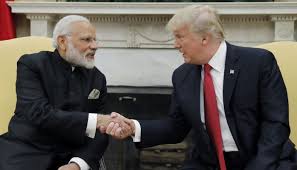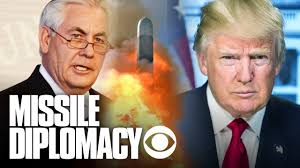THE HINDU EDITORIAL -16TH AUGUST 2017
Want to Become a Bank, Central / State Govt Officer in 2020?
Join the Most awarded Coaching Institute & Get your Dream Job


Now Prepare for Bank, SSC Exams from Home. Join Online Coure @ lowest fee
Lifetime validity Bank Exam Coaching | Bank PO / Clerk Coaching | Bank SO Exam Coaching | All-in-One SSC Exam Coaching | RRB Railway Exam Coaching | TNPSC Exam Coaching | KPSC Exam Coaching
THE HINDU EDITORIAL -16TH AUGUST 2017
1. a) Future perfect?
In talking of a New India free of casteism, terrorism, corruption and nepotism by 2022, in his Independence Day address, Prime Minister Narendra Modi was seeking to sell a longer term vision to Indians, a vision that goes beyond the limit of his current term in office. While he did dwell on the achievements of his government in the last three years, Mr. Modi was largely focussed on his vision for the future, one in which farmer income would double and where youth and women would have many more opportunities. The road map was not clear, but Mr. Modi is convinced that his achievements are steps toward a happier, more secure future for the country. Demonetisation, the Goods and Services Tax, the movement toward a digital economy, all these were spoken of as part of a movement inexorably leading to a corruption-free, transparent India. Unlike last year, when he was silent on the violence in Kashmir, this Independence Day he went so far as to ask terrorists to join the mainstream, insisting that the Kashmir problem cannot be solved by bullets, but only by embracing fellow Kashmiris. But more important, he went on to speak against violence in the name of faith, saying it is unacceptable in India. Mr. Modi has spoken about communalism and casteism as twin evils before, but the specific reference to violence in the name of faith appeared intended as a word of caution meant for the overzealous in his own political constituency, especially lynch mobs that have targeted Muslim and other traders in the name of cow protection. In this, he seemed to echo President Ram Nath Kovind, who called for a compassionate society that does not discriminate on the basis of gender or religious background. And like Mr. Kovind, who called for a partnership between the citizen and the government to ensure that the benefits of government policy reach all sections of the people, Mr. Modi invoked Team India to run for a New India. Although he spoke about the support India has received from several countries in its fight against terrorism, Mr. Modi made no mention of Pakistan other than in relation to the surgical strikes, which, he said, had forced the world to accept India’s capability and strength. Last year, he had made specific references to Balochistan, speaking about the attacks on Balochs in Pakistan, and how people there had commended him for his support for them. There was no mention of China or the Doklam stand-off either. The speech seemed directed entirely at the domestic audience, with the focus largely on development and a reliance on technology-enabled solutions to transform the country over the next five years. That is a period that goes beyond the next general election and quite clearly Mr. Modi sees himself as serving a second term.
1.b) Making friends
In theory, the two factions of the All India Anna Dravida Munnetra Kazhagam have every reason to merge. The original cause of the split, the dominance of the Sasikala family in the party, is now seemingly irrelevant: Chief Minister Edappadi K. Palaniswami, who was elected as the leader of the AIADMK legislature party at a meeting presided over by V.K. Sasikala, is more assertive now, shepherding a resolution to rescind the appointment of her nephew, T.T.V. Dhinakaran, as deputy general secretary of the party. Also, both factions need to retrieve the party election symbol, Two Leaves, that has been frozen by the Election Commission. This is unlikely without a formal merger. However, things are not exactly what they seem. Despite the distancing from Mr. Dhinakaran, the ruling faction of the AIADMK, the AIADMK (Amma), is hesitant to speak harshly of Ms. Sasikala, other than to say the party’s cadres would not like anyone else to occupy the post of “permanent general secretary” held by Jayalalithaa. O. Panneerselvam, the leader of the breakaway faction, met Prime Minister Narendra Modi to “convey the sentiments of the AIADMK cadres”, a shorthand for opposition to the merger proposal. With elections to the Lok Sabha two years away, and to the State Assembly four years away, there is no pressure to hurry through with the merger process. But issues that stand in the way, the competing ambitions of Mr. Palaniswami and Mr. Panneerselvam, and the acute differences over sharing ministerial berths and party posts, are unlikely to disappear. The demand for constituting a probe into Jayalalithaa’s death is a cover for other unstated claims to power and pelf. After months of deep distrust, the two factions are not going to magically come together all of a sudden without working out a practical powersharing arrangement. As things stand, a merger can only be mediated by the Bharatiya Janata Party, which seems to wield considerable influence with both factions on account of being in power at the Centre. In recent times, searches by Income Tax, Enforcement Directorate, and the Central Bureau of Investigation have made leaders of both factions cosy up to Mr. Modi. The BJP needs a united AIADMK, with its election symbol et al, but without a strong leadership, as an instrument to find a political foothold in Tamil Nadu. Over the long term, the national party would like to eat into the vote bank of the AIADMK, but in the near term an alliance with a weakened AIADMK would do. Just as the split earlier served its purpose of isolating the corruption-tainted Sasikala family, a merger now would serve the purpose of finding an important, but non-domineering ally. But the influence of the Sasikala family works also in unseen ways, and the BJP could well be overestimating its own power over the ruling faction of the AIADMK. There is no telling who is using whom.
WORDS/ VOCABULARY
1) Nepotism
Meaning: The practice among those with power or influence of favouring relatives or friends, especially by giving them jobs.
Example: His years in office were marked by corruption and nepotism.
2) Dwell on something
Meaning: To spend a lot of time thinking or talking about something unpleasant.
Example: He tends to dwell on the negative aspects of his performance.
3) Convinced
Meaning: Cause (someone) to believe firmly in the truth of something.
Example: Robert’s expression had obviously convinced her of his innocence.
Synonyms: Persuade, Satisfy
4) Inexorably
Meaning: In a way that is impossible to stop or prevent.
Example: The conflict was to lead inexorably to the outbreak of World War I.
5) Overzealous
Meaning: Too zealous in one’s attitude or behaviour.
Example: He’s been overzealous in handing out parking tickets.
6) Lynch
Meaning: (Of a group of people) kill (someone) for an alleged offence without a legal trial, especially by hanging.
Example: Her father had been lynched by whites.
Synonyms: Kill, Murder
Lynch mobs
Meaning: A band of people intent on lynching someone.
7) Stand-off
Meaning: A deadlock between two equally matched opponents in a dispute or conflict.
Example: The 16-day-old stand-off was no closer to being resolved.
Synonyms: Deadlock, Stalemate
8) Factions
Meaning: Dissension within an organization.
Example: A council increasingly split by faction.
Synonyms: Dispute, Division
Antonyms: Harmony
9) Seemingly
Meaning: So as to give the impression of having a certain quality; apparently.
Example: A seemingly competent and well-organized person.
Synonyms: Apparently, allegedly
Antonyms: Genuinely
10) Assertive
Meaning: Having or showing a confident and forceful personality.
Example: The job may call for assertive behaviour.
Synonyms: Confident, Forceful
Antonyms: Retiring
11) Cadres
Meaning: A small group of people specially trained for a particular purpose or profession.
Example: A cadre of professional managers.
Synonyms: Corps, Team
12) Probe
Meaning: A thorough investigation into a crime or other matter.
Example: A probe into city hall corruption.
Synonyms: Investigation, Scrutiny
13) Pelf
Meaning: Money, especially when gained in a dishonest or dishonourable way.
Example: Damnation dog thee and thy wretched pelf!




